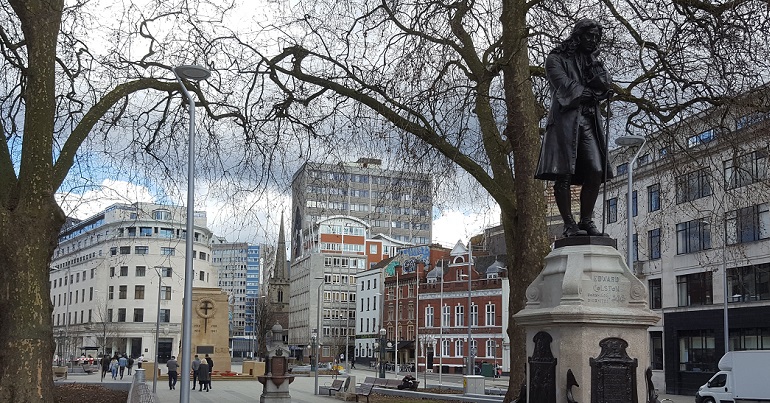After the Edward Colston statue, destroy all momuments of colonisers

We don’t need to keep monuments to colonists in order to preserve ‘the past’ or ‘history’. Those that seek to do this do not have an accurate understanding of what history is, or how it is created. The popular conception of ‘history’ is that we find out what happened in ‘the past’ and then write about it and that becomes history. Anybody who has done any historical research knows that this is not really the case.
Historians don’t have access to ‘the past’ in a real sense. We only have access to depictions of it in memories, letters, buildings or artworks, and we seek to use that to tell a story about the past. We don’t lie about the past but we have to make choices about what stories we tell. These stories about the past are what becomes history.
As historians, we choose which archives we study, and we choose which parts of those archives we read. We then choose which parts of those we use for our story. We choose how we interpret the sources and we choose the order in which we put them. The writers of the archives, or the people who we interview, or those that made the artefact made choices too. Sometimes they lie about the past or give a version of events that is more favourable to them. They always write from their own point of view, according to their own needs.
What people see when they read a history book, is not a ‘real past’ as that is something that could only be accessed by an omniscient God. It is the product of the choices made by historians, and the choices made by the subjects of our histories.
Who gets to make these choices? Who gets to decide how these stories are told? These are political choices. To preserve Colston through a statue in the middle of Bristol was a choice made by the, and those that profited from the wealth of slave traders. Placing a statue in the centre of Bristol was a way of writing a history, of participating in the process of telling stories about the past. The story that they were trying to tell was one where Colston was a heroic figure, a philanthropist who contributed greatly to the city. If they had the power to do so, those enslaved by Colston would have told a different story in a different way.
Those that defend the statue on the basis of ‘preserving history’ need to be conscious of whose history they are preserving. In destroying the statue, Black Lives Matter protestors are making their own choices about the way in which the story of the past is told. They are not so much destroying history as writing it.
We should tear down the statues of Colston and those of Churchill and those who other violent colonialists. The stories which these statues were made to tell was of their subjects as benevolent war heroes and great leaders, and today they say that the violence of the current moment is a departure from that norm. As the historical philosopher Walter Benjamin wrote “The tradition of the oppressed teaches us that the ‘state of emergency’ in which we live is not the exception but the rule. We must attain to a conception of history that is in keeping with this insight.” This means rejecting histories of the colonisers and writing our own.
PS. We hope you enjoyed this article. Bright Green has got big plans for the future to publish many more articles like this. You can help make that happen. Please donate to Bright Green now.
Image credit: RedSquirrel – Creative Commons



As a fellow, I presume radical, historian, I agree completely with how history is written, although there is a degree of honesty, self-awareness, objectivity, that separates it from the realm of mythology.
But I do not think that those opposing the tearing down the statues of historical criminals are necessarily retrospectively supporting the lives of for instance a slave trader. They’ve never given it too much thought.
They are conservatives, supporters of the status quo, terrified by iconoclanacism. What else might be up for change?
Some are populists, moved by racial prejudice morphing into hatred and fascism at the end of the spectrum.
It is all about the present, for us and for them, not the past. The symbol of the past matters overwhelmingly for what it means now. The outcome depends little on closely argued academic historical truths.
AVANTI!